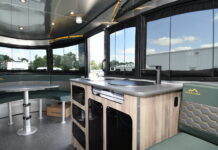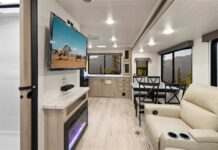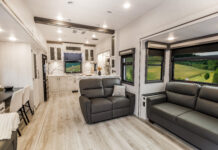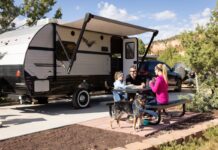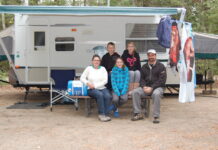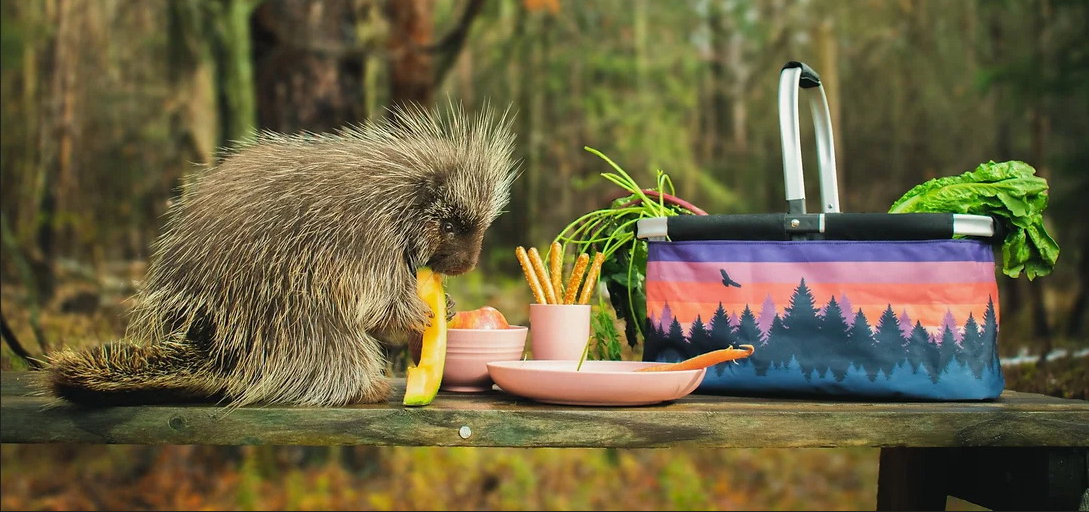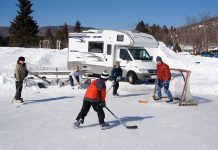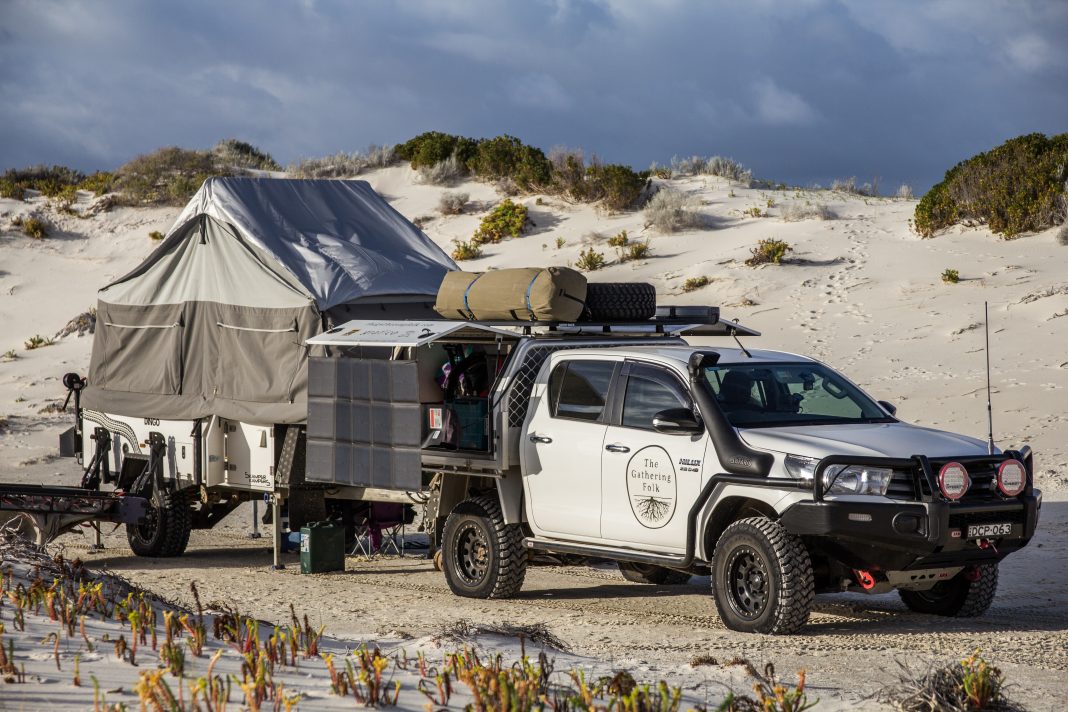Off-Road Towing 101
A Special Feature by Colt Fetters
For those who are unfamiliar with off-road towing, it may seem like you’re tempting fate to tackle off-road situations with your trailer or camper. But so long as you take the appropriate care and caution, it can open the door to discovering hidden off-road gems.
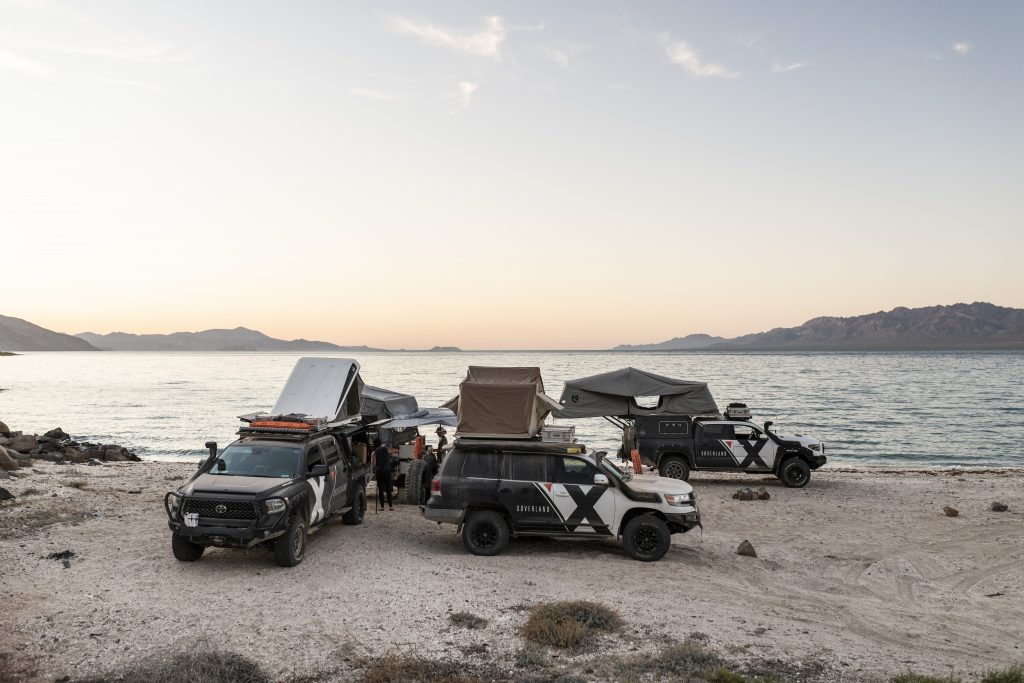 Tire pressure
Tire pressure
Lowering your tire pressures for off-road travel is crucial. It effectively lengthens the tire’s footprint and allows the tires to conform to the road/trail, ultimately giving your vehicle more traction. It will also provide you with nice, smooth and soft driving conditions, making it far more enjoyable. Don’t forget to lower your trailer’s tire pressure as well!
There are many varying opinions on exactly what PSI you should drop down to, but 16 psi depending on the weight of your tow vehicle should offer you a comfortable range to find what suits the conditions and your driving preferences.
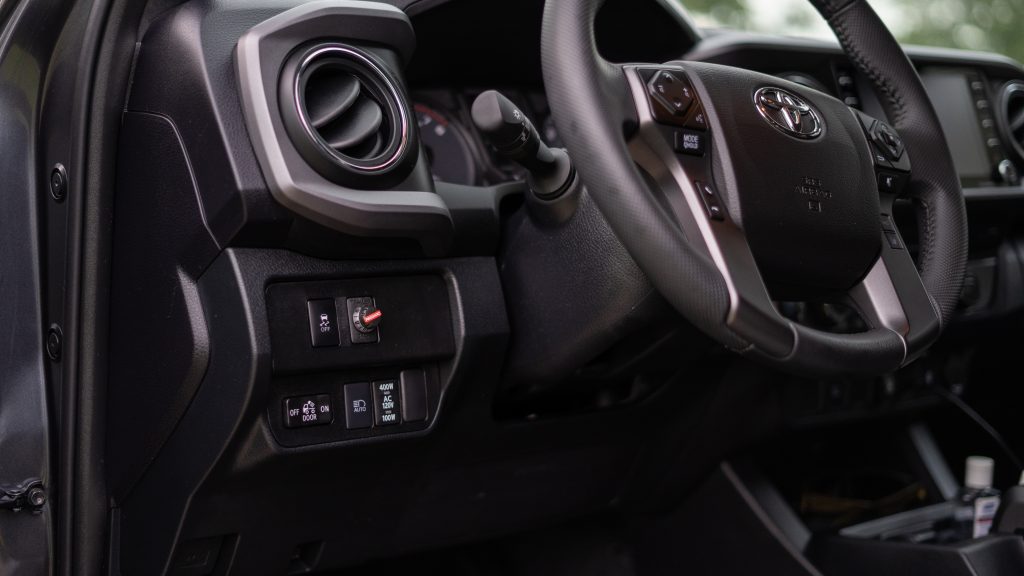 What is an electric trailer brake controller and when do you need one
What is an electric trailer brake controller and when do you need one
As the name suggests, an electric brake controller controls the brakes on your trailer. When you’re towing thousands of pounds behind you on the road, braking can quickly become dangerous when the only thing controlling your trailer is your vehicle’s brakes. Electric trailer brakes become important when you’re attempting to slow down. The added weight and momentum of your trailer can make slowing down the towing combination more dangerous by causing it to keep going and possibly crashing into the back of the vehicle. An electric brake controller wires into your tow vehicle and allows you to control and manage the brakes on your trailer from the drivers’ seat.
Choosing the right brake controller for you will depend on how you’re planning to travel. If you’re wanting to leave the roads behind and head off-road, REDARC Electronics’ Tow-Pro Elite is a great option. The Tow-Pro Elite has two modes of braking, proportional and user controlled. Proportional works the same as typical high-end brake controllers for highway towing but when you’re ready to head off-road, you are able to switch the Tow-Pro into user-controlled mode to set the appropriate brake force to suit the terrain conditions, surface or your personal preference. For instance, when towing through difficult terrain like sand or mud, the last thing you want is the trailer brake applying too much braking, causing your vehicle to become stuck. With a user-controlled unit such as the Tow Pro, braking force can easily be controlled on the fly via the adjustable switch.
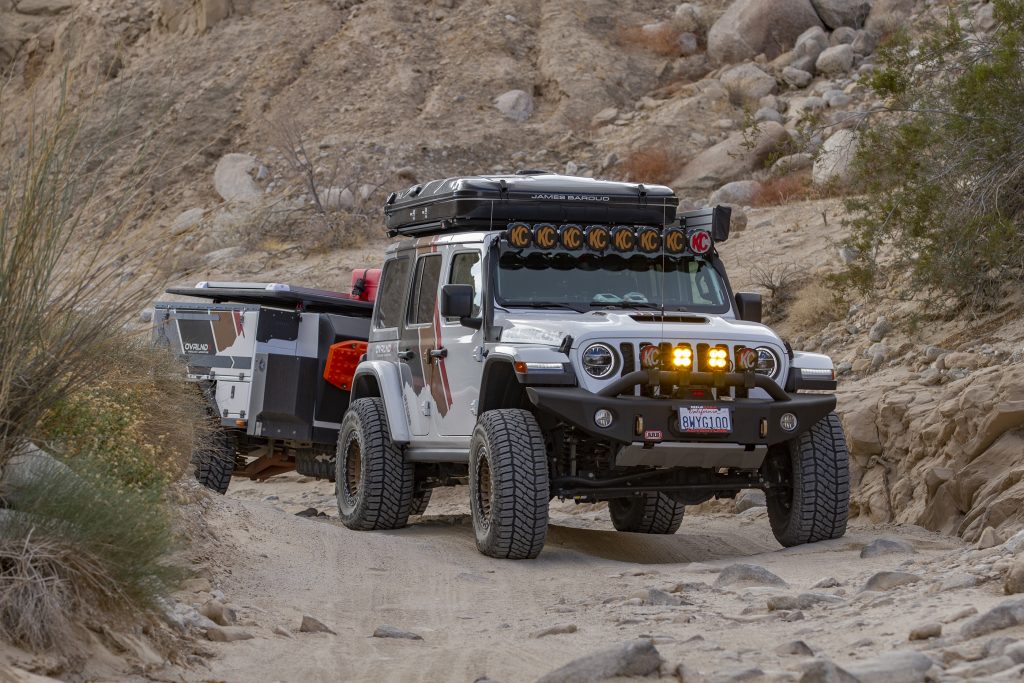 Load distribution in your trailer
Load distribution in your trailer
Load distribution is another important factor to consider when packing your trailer. Knowing how to pack your trailer correctly allows you to mitigate some of the risks of trailer sway. Always ensure your heavy items are stored low, secured and over or in front of the axle. Place your lighter items in higher places, stored in storage containers and on non-slip matting. If you’ve got any water tanks, travel with them full to keep the centre of gravity on your trailer low which can help to stabilize your load.
Towing maintenance
Just like your car, your trailer needs servicing too. Off-road environments are especially tough on trailers. It’s good to have your brakes, bearings and other mechanical systems regularly checked for correct lubrication and operation along with the lights and electrical wiring.
Towing Equipment
Emergency equipment is obviously crucial when you’re travelling and towing across different terrains. Ensuring you have things like shovels, tire recovery tracks, an accurate tire pressure gauge and an air compressor to deflate and pump tires up again before heading back onto the road are all invaluable.
Checklist
Before you set off on your adventure, there are a few things you should check to ensure your trip will go as smoothly as possible.
- Tire Pressure: The placard on your trailer or RV will tell you what the recommended tire pressures are for on road towing. Make sure to adjust to off-road situations.
- Boot and windows are closed and locked: This includes your awning as well as any other fixtures on your vehicle and trailer. You don’t want anything flying open on the road.
- License plate and brake lights: Ensure that they’re working.
- Water pump: Make sure your water pump is off. If the tap leaks while travelling it could lead to water damage and empty tanks at your destination.
- Inside the trailer: Double check everything is secured and distributed in the best configuration for travel.
- Trailer connections: Double check all your trailer connections before embarking and then regularly during the trip. Also make sure that the safety chain is connected in a ‘criss cross’ pattern so, if the trailer detaches from the tow vehicle, it will land in the chains and not on the road.
So remember, next time you and your family are headed off-road with your camper or travel trailer in-tow, don’t be frightened of getting out there and doing as the locals do. So long as you’re prepared to learn as you go and adjust your approach from location to location, you could soon find yourself looking out for those trickier terrains to test out those towing skills.
Associated Video:







